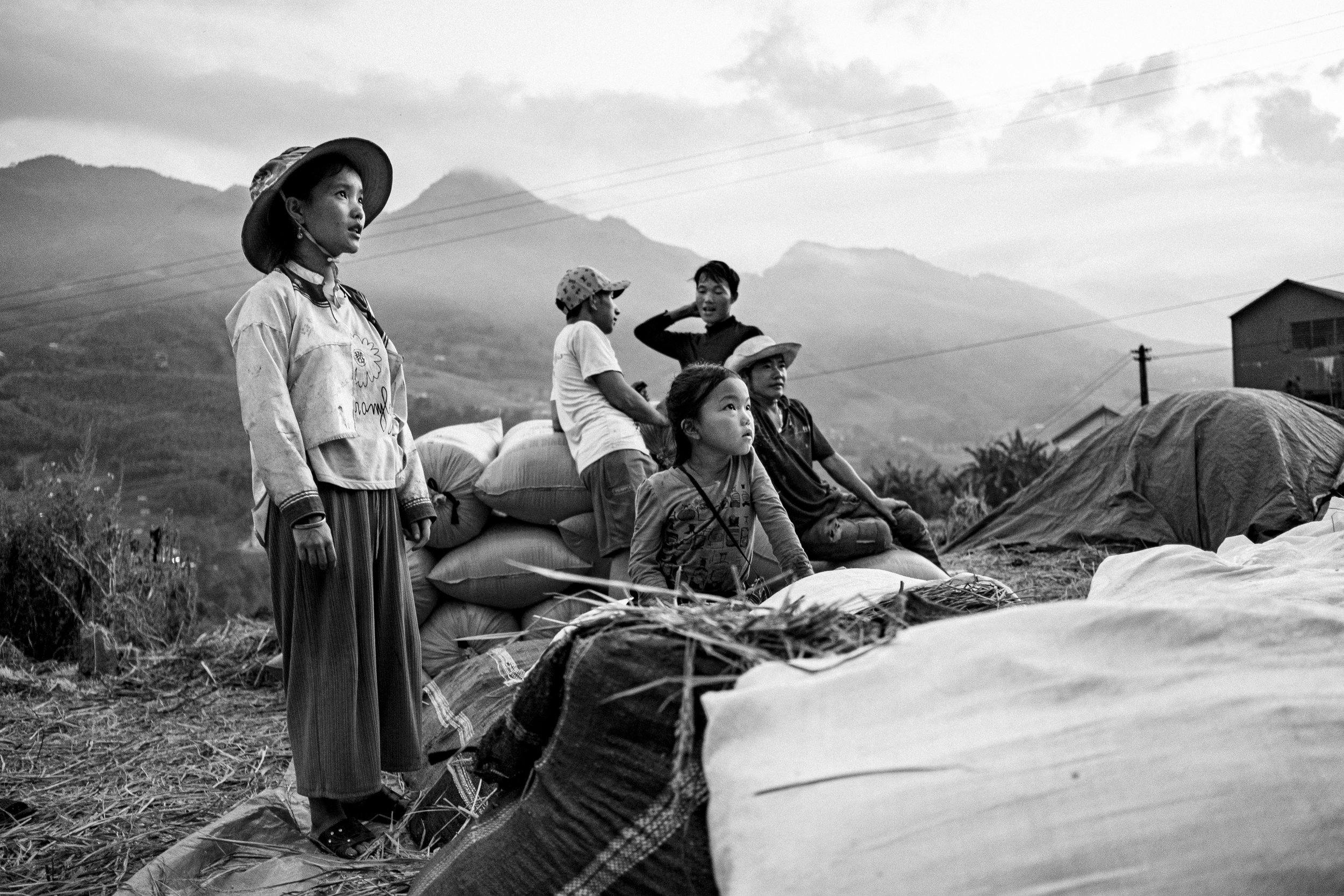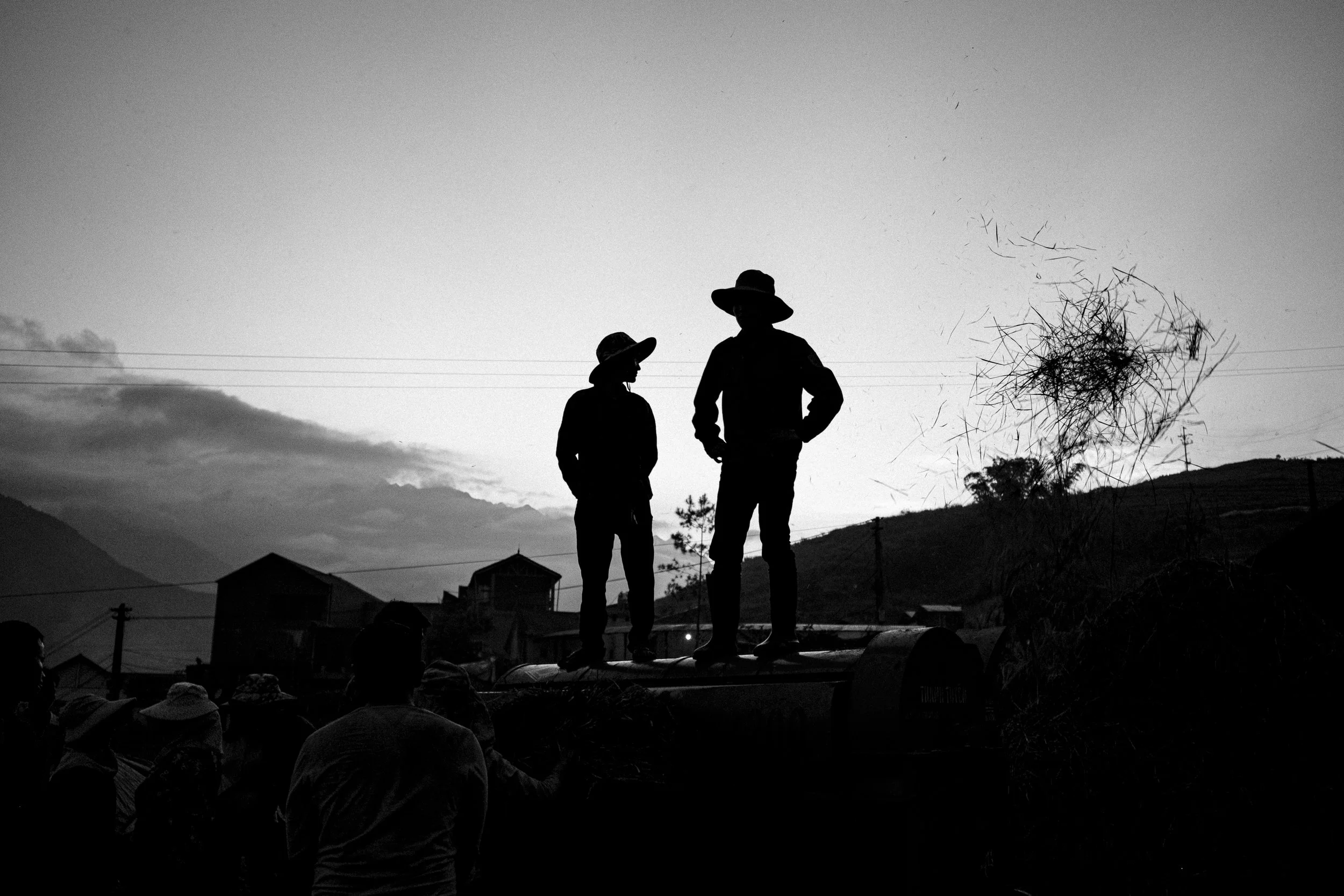
The past does not exist. There is only the future.
A melancholic beauty
There is silence. The air is thick with a burning smell, the kind that gets into your head and never goes away. The road seemed endless, I kept driving along it in the hope of finding something. The expanses of rice fields in the distance gave that landscape a melancholic beauty. It seemed as if time had stopped, there was nothing to remind me of home. Actually, those days there were the farthest I had ever experienced. If I had asked myself what year it was, I probably could have given myself any answer. Time did not exist there, or at least, it did not exist according to our conception. Life flows at a different pace from ours, there are not many rules, there are no superstructures. It is complicated and simple at the same time.
As I drove that crumbling scooter, I imagined what that last night would be like, with the dazzling stars, the sound of the birds, that constant rustling of trees that, like fallen angels, abandon themselves to solitude. Along the way, in the surrounding landscape, it was usual to notice trees rising lonely on the edge of a cliff. It was almost like marking a boundary between life and death, those trees represented life. I remember thinking that those were lucky trees. Witnessing the greatness of that small portion of the universe every day, centuries and centuries of sunrises and sunsets, of storms, of men at work. Magnificent landscapes cheered their boundless solitude as the spectacle of the world came to life each day at dawn and died each evening at dusk.
The sun was dying, it was my last hours in Sa Pa, suddenly, on my way home, a scene flashed violently before my eyes. I stopped the scooter and stood there observing. There was a family of farmers working hard and with a harmony I had never seen before. Slowly I got closer and noticed that there was a strange beauty in what I saw, in their faces, in their movements. Everything was perfectly synchronised with the world around them, with that world so distant from my own.
What are we really missing?
The men worked in the rice fields, bent under the weight of the burning sun, the women harvested the plants with fluid, almost dancing gestures, while the children played nearby, helping with small tasks. I sat down, did not immediately take my camera, stayed to observe their moving bodies from a more intimate perspective. I felt like an intruder, an indiscreet observer of an authentic life worthy of being called such. There was something irresistible about that scene, something that had to be experienced. As I approached, I immediately noticed a light-heartedness and happiness that I had rarely seen elsewhere. I, on the other hand, was pensive, there was something that disturbed me and that I could not understand. Why was the world I belonged to so different? What have we done all these years to improve our lives? What are we really missing?
In the children's faces I noticed a happiness that I did not possess. My empathic sense was confused with illusion, and what I saw looked more like a dream than real life. I spend my days in front of a computer, often searching for a role within this disillusioned society. The moments when I really stop to think are rare and, almost always, these coincide with the moments when I photograph.
I looked at their clothes, they were brightly coloured, but I cannot remember the details. When I take black and white photos, colours no longer exist for me. I vaguely remember the colours of the sky, which was perhaps dense with fire, or perhaps not, but it doesn't really matter. I started to take pictures, but I quickly realised that I was not looking for a perfect photo, I was trying to capture a fragment of life. I approached to talk to them, I knew it was difficult, in fact nobody there spoke English. We managed to communicate after a short time with glances and gestures. It was a feeling I had never experienced before, I felt so grateful to be there at that moment. I had finally found a shred of humanity in the world and I knew that this was extremely rare.
Family, land and work
Hmong families are in extreme poverty. They do not have much except their land and work. Their life in the mountains of Sapa is an experience steeped in the natural beauty that embraces them every day, a beauty that is their most precious treasure. Their life is simple, marked by hours that seem to flow like a quiet river, in suspended time. Families constantly support each other, and members collaborate harmoniously in various daily activities, creating a mosaic of solidarity and community. There are no tall concrete buildings, no cars or traffic. The air they breathe is fresh, clean, healthy. Food comes from the land they cultivate themselves, and most of the clothes they wear are hand-woven.
On the other hand, the situation was not so different from 50 years ago. The war had unified a country, but the conditions of these families had remained almost the same. I wonder today what their purpose in life was and whether it is even necessary to have one. We live in a frenetic world that forces us to prevail over others. We have forgotten everything. I found myself in a world I thought had vanished, a slowly dying corner of paradise, yet still pulsating with life. A place where time seems suspended, preserving the essence of an unspoilt past.
In their faces I noticed immense strength and courage. There is a will to look forward, to build a better future. The dark shadow of the past dissolved before that deep unity. The family is their immovable point of reference and the constant pivot of that small world. Perhaps it is from this that western society must start again.
Piero Corvo - Family portrait
Sa Pa, Vietnam. 2023.
All photos here:
Follow my journey.
































